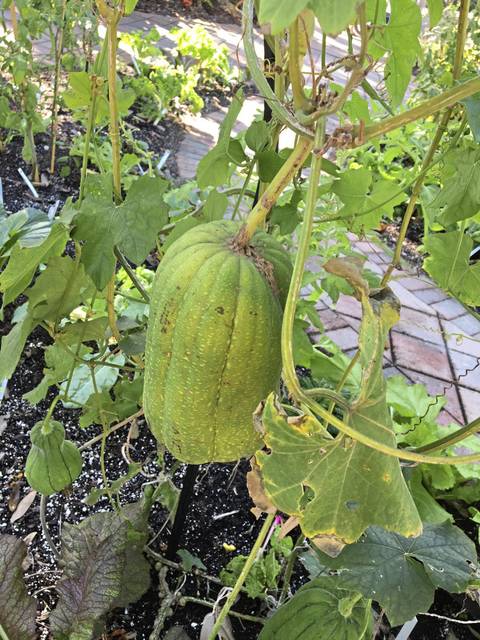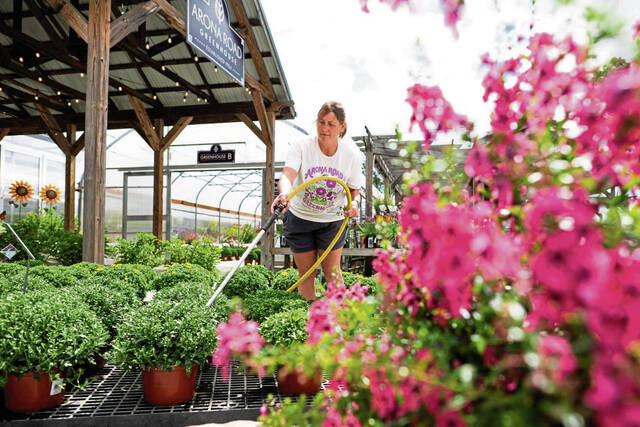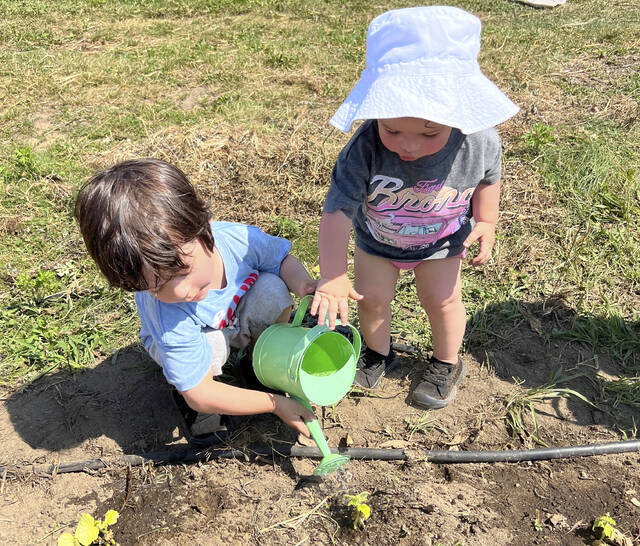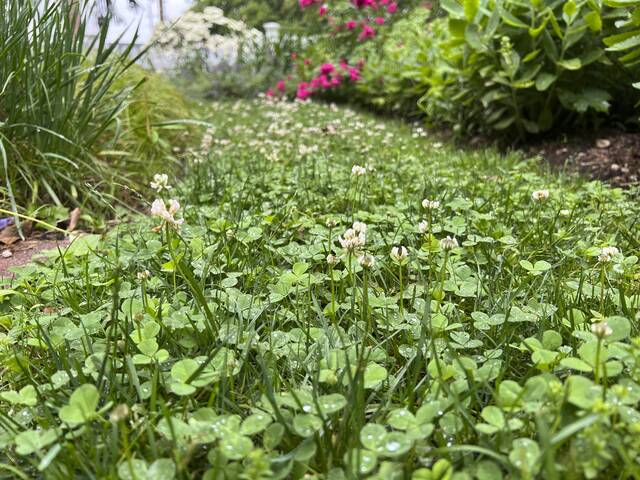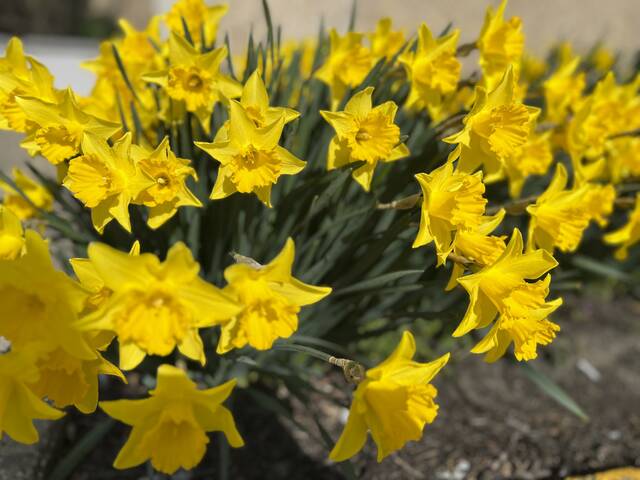Question: I have a question about volunteer squash plants in my compost pile. More than likely they are from butternut seeds. A few look true, a couple have narrower crooked necks and one is gigantic! Are they edible?
Answer: Some plant families are self-pollinating, including beans, peas and tomatoes. That means their flowers are capable of pollinating themselves and the resulting seeds come true (meaning they have the same traits as their parents).
Summer and winter squash, cucumbers, melons, pumpkins and other members of the squash family (Cucurbitaceae), however, do not have the same trait. These crops are notorious for spreading their genes around through cross-pollination.
In fact, cross-pollination occurs in the vast majority of plants. During cross-pollination, there is an open exchange of pollen among plants within the same species. Because of this free exchange of pollen among cross-pollinated plants, mixing of genetic material occurs, creating natural hybrids such as the squash in your compost pile.
If you grow a particular variety of squash for its flavor and vigor, and the plant is cross-pollinated with another variety of squash during the growing season, the seeds in the resulting squash will have a mash-up of genetic material from the two parents. Uncontrolled crosses like this can sometimes result in terrific natural hybrids, but more often than not, the results are lackluster.
As you’ve discovered, when a collection of seeds ends up in the compost pile, you never know what you’re going to get. Yes, the squash growing in your compost pile are edible, but there’s a very good chance they won’t be tasty. They might have a tough texture, too.
Because most squash seeds and plants you purchase for your garden are created through the intentional cross of two very specific parents, random crosses like yours are a shot in the dark. This is why it’s important to invest in high-quality seeds at the start of each growing season for members of the Cucurbitaceae family. Unless you can hand-pollinate the flowers purposefully and control what pollen makes it into each female flower and then seal off the flower immediately after hand-pollinating, growing squash and cucumbers from your own saved seeds is a gamble.


